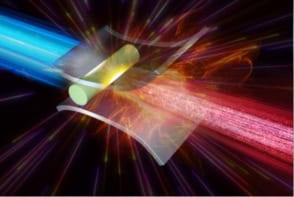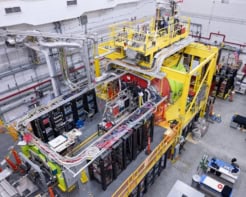In this episode of the Physics World Stories podcast, scientists and engineers from the CERN describe how the pandemic has affected the particle physics lab and the way they collaborate with colleagues.
CERN’s large hadron collider (LHC) is currently in shutdown ahead of its third run scheduled for later in 2021. José Miguel Jimenez, head of CERN’s technology department, explains how engineers have adapted in order to limit the delays brought about by the pandemic.
Jimenez also looks ahead to the LHC’s next long shutdown – scheduled for 2025 – when the particle accelerator will undergo a major upgrade. The transformed high-luminosity machine (HL-LHC) will generate 10 times more collisions than at present.
Also in the podcast is Archana Sharma, a physicist who’s been working as a project manager on the GEM experiment at the LHC’s CMS detector. Her team has designed gas electron multipliers that will improve the muon-detection abilities of CMS in the HL-LHC era.
Glester’s final guest is Sahal Yacoob of the University of Cape Town. Yacoob’s year-long sabbatical at the LHC’s ATLAS experiment coincided with the pandemic, changing the experience somewhat. As Yacoob explains, CERN researchers were accustomed to virtual communications, but he is sorely missing those informal coffee-break chats, which can lead to unexpected developments.
For another personal account of CERN during the pandemic, take a look at this feature from the January 2021 issue of Physics World. Dave Barney describes how despite lockdown he has continued his important work on developing a new calorimeter for CERN’s CMS experiment – a piece of equipment that will be pivotal to the success of the HL-LHC.



